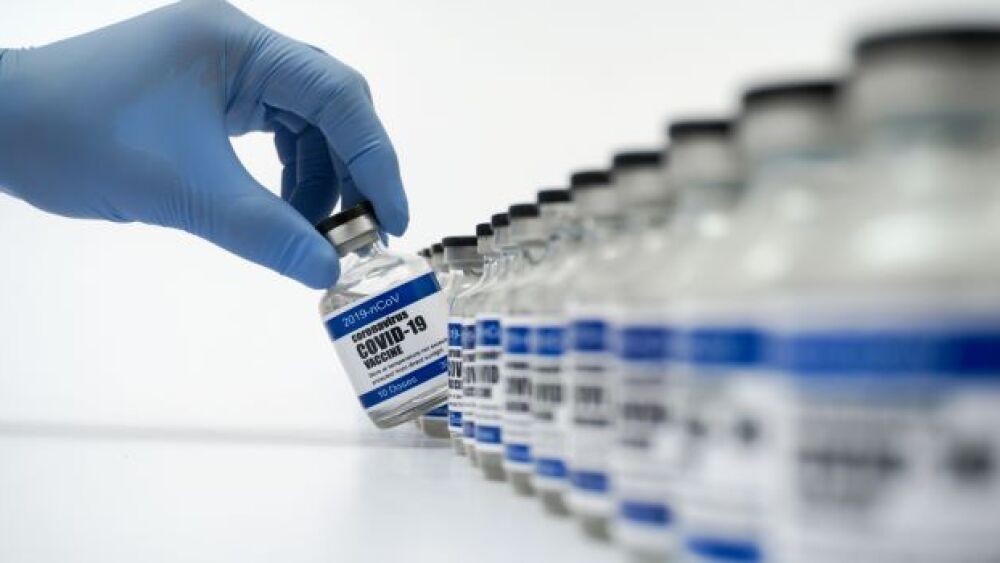American health authorities have a dilemma. On one hand, COVID-19 booster shots for immunocompromised patients dramatically increase their immune response. On the other, in many parts of the world only a tiny fraction of the population have received even one dose of any COVID-19 vaccine. So, who should get the vaccines?
American health authorities have a dilemma. On one hand, COVID-19 booster shots for immunocompromised patients dramatically increase their immune response. On the other, in many parts of the world only a tiny fraction of the population have received even one dose of any COVID-19 vaccine. So, who should get the vaccines?
Currently, Pfizer/BioNTech is developing a booster shot specifically for the Delta variant and advocating for a proactive third booster 6 to 12 months after a person is fully vaccinated. The Biden Administration, the Centers for Disease & Prevention (CDC), the World Health Organization (WHO) and others say there is no evidence that a booster is needed, particularly in light of the very low levels of vaccination throughout the world.
As Jonathan Baktari, M.D., CEO of e7 Health, told BioSpace, “The CDC factors more into its equation than science alone. It says that rolling out a third (booster) shot takes energy and resources away from other people who need their first or second shots.”
Yet, if the U.S. decides to administer a third shoot to vulnerable people – those with preexisting conditions and perhaps those over age 60, he suggested that vaccine supplies wouldn’t be significantly diminished and the protection of vulnerable populations would be improved notably.
Israel is taking that approach now. On July 13, it began delivering a third shot to immunocompromised individuals – such as cancer patients and organ transplant recipients. The Israeli government has not yet determined whether to extend booster shots to the general population.
Pfizer advocates for a third dose out of concern about the vaccine’s duration of protection and the rise of the Delta variant. Multiple researchers have shown that after about six months, the protection conferred by the vaccine wanes. The 95% protection that existed two weeks after the second dose drops.
Individuals still are protected against serious disease, but not against becoming infected with the SARS-CoV-2 virus and exhibiting mild to moderate symptoms. Therefore, Pfizer met recently with government health officials, in a meeting convened by the Department of Health and Human Services, to advocate for a third dose of the vaccine for the elderly and immunocompromised.
The benefit of being proactive could help constrain the spread of the Delta variant (with the Delta-specific booster Pfizer is developing) and save lives, particularly among America’s at-risk populations. According to Pfizer, a third shot administered six months after the second dose can elicit an antibody response that is 5- to 10-fold more robust than after the two primary doses.
Additional research, published in Nature, notes that the mRNA vaccine is also effective against the Delta variant and that it appears to provide persistent human germinal center responses. Essentially, they remember the virus.
“Germinal cells are the most embryonic versions of B and T cells. So, once exposed to the virus or vaccine, they can create more B or T cells – mounting an immune response – long after antibody levels have dropped,” Baktari explained. “The higher your antibody level, the more protection you have.”
With other vaccines – hepatitis B or measles, mumps, rubella, for example – booster shots cause no untoward side effects. COVID-19 vaccines are expected to follow a similar pattern, merely boosting a waning immune response.
“In the world of vaccine medicine, there is no downside – other than economics – of ever giving anyone a booster. If there was no adverse reaction to the first two doses, there is almost no chance of having a reaction to a third,” Baktari said.
The objections of the CDC and WHO, who each say a booster shot is not needed at this time, seem to be rooted in a combination of public health and equity concerns.
Nearly 49% of Americans are fully vaccinated and more than 30 million more have received their first injection, according to Johns Hopkins University Coronavirus Resource Center. The CDC’s COVID Data Tracker notes that 67.7% of Americans have received at least one dose. In contrast, many nations in Africa report that less than 1% of their populations are fully vaccinated.
To address the global crisis, Pfizer has pledged to manufacture 2 billion doses of its vaccine and the U.S. government has contracted to purchase 200 million doses this year and 300 million in 2022 for low-to-middle income countries and those in the African Union via COVAX. China has pledged to supply 110 million doses to COVAX in addition to the 350 million it already has sent.
The problem of equity isn’t limited solely to supply. In India, for example, vaccine hesitancy is an issue, along with a poorly planned vaccine rollout, according to the BBC. So far, only 3.5% of India’s population is fully vaccinated, and 15% have received one dose.
“Hopefully, the world will be inoculated and the frequency of new variants emerging will drop,” Baktari said.
Looking purely at the science, Baktari said, “If equity and finances aren’t factored in, based on what we’ve learned with other vaccines, everyone should get a third dose of the COVID-19 vaccine. There’s no downside, other than financial.”
“One way or another you, as an individual, will meet the spike protein,” he stressed. “You will meet it either through vaccination or by contracting the virus. The CDC knows that, so it’s just a matter of timing. For each person who gets the booster, that’s one space less for those getting their first two doses. There’s no downside to the booster. Eventually, everyone will get a booster shot.”






